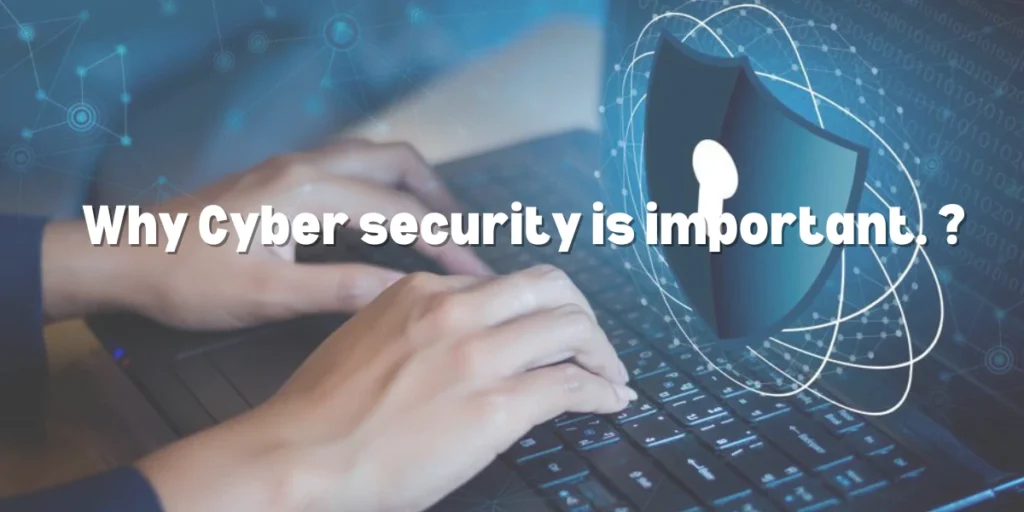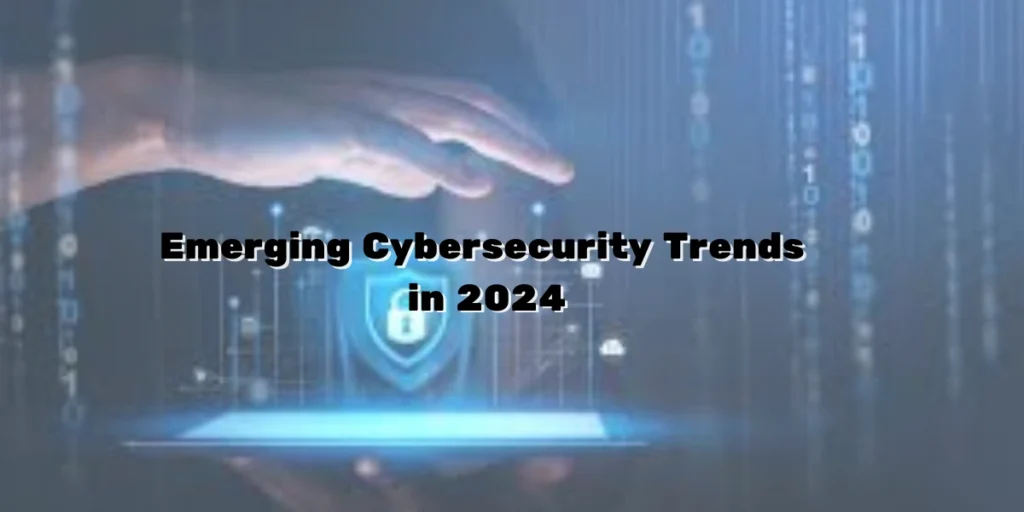In today’s digital world, businesses big and small have deal with cyber threats. Cyber crime isn’t just something that impacts large companies anymore; it’s a daily worry for businesses all over the globe. As sophisticated attacks like ransomware, data breaches, and phishing become more common, the need for specialized cybersecurity companies has skyrocketed. These companies play a crucial role in protecting sensitive info, keeping customer trust, and making sure businesses can keep running smoothly.
In this article, we’ll check out the top cybersecurity companies in 2024, showcasing what they offer and looking closely at how they help businesses shield themselves from changing cyber threats.
Why Cybersecurity is Super Important in 2024

With cyber threats increasing, the global cybersecurity market is expected to hit $266.2 billion by 2027. This growth shows just how urgent it is for businesses to put money into cybersecurity solutions. Nowadays, cyber attacks can cost companies millions in recovery, lawsuits, and lost profits. From major breaches like the SolarWinds attack to ransomware incidents that paralyze essential services, not having enough cyber defense is hugely risky.
In 2024, businesses need cybersecurity solutions that protect against outside attacks and also defend against insider threats. Those make up about 34% of all data breaches. This twofold protection means teaming up with a trustworthy cybersecurity companies is more crucial than ever.
Top Cybersecurity Companies in 2024: Who’s Leading the Game?
Here are the top cybersecurity companies dominating the industry in 2024 and how they deliver essential cyber protections for businesses in different sectors.

1. Palo Alto Networks
– Best for: Network Security, Cloud Security, Advanced Threat Protection
– Founded: 2005
– Headquarters: Santa Clara, California, USA
– Palo Alto Networks is still a leader in cybersecurity companies, offering advanced solutions for network and cloud security. Their next-generation firewall tech is amazing at spotting and stopping threats. Plus, their Prisma Cloud solution gives businesses the tools needed to secure cloud settings, which is super important as more cybersecurity companies shift to hybrid cloud setups.
They also use artificial intelligence (AI) and machine learning in their services, which helps businesses find strange activities and stop cyber threats in real-time. This kind of automated threat intelligence cuts down the time it takes to deal with cyber incidents, ultimately reducing damage from attacks.
2. CrowdStrike
– Best for: Endpoint Security, Threat Intelligence, Malware Protection
– Founded: 2011
– Headquarters: Sunnyvale, California, USA
– CrowdStrike is known for leading the way in endpoint security. Their Falcon platform uses AI-driven analytics for a complete way to find and tackle threats on devices like laptops, desktops, and mobile phones. This is super important in today’s remote work culture, where endpoints can be the weakest link in cybersecurity.
CrowdStrike’s threat intelligence gives firms detailed info on the latest cybercrime patterns, letting them get ready for and defend against new cyber threats. Their skills in ransomware detection and response have made them popular with organizations looking for strong endpoint security.
3. Cisco Secure
– Best for: Enterprise Cybersecurity, Network Defense, Zero-Trust Security
– Founded: 1984
– Headquarters: San Jose, California, USA
– Cisco has been a big name in enterprise cybersecurity, providing a wide range of security solutions for businesses of all sizes. Their Cisco SecureX platform ties together security technologies across endpoints, cloud, and networks for complete protection.
One of Cisco’s major strengths is how they’ve embraced the zero-trust security model, which treats every user or device as untrusted until proven otherwise. This method works really well for companies aiming to prevent internal threats and protect vital assets.
Cisco’s advanced threat detection tools use AI and machine learning, making it easier for security teams to spot and act on issues before they blow up into major breaches.
4. Symantec (Broadcom)
– Best for: Data Loss Prevention, Cloud Security, Email Security
– Founded: 1982
– Headquarters: Mountain View, California, USA
– Symantec, now under Broadcom, has been a reliable name in cybersecurity for years. Their know-how in data loss prevention (DLP) and cloud security makes them a go-to choice for businesses wanting to protect sensitive data.
They emphasize securing email systems, which are a major target for cybercriminals. Their Email Security. cloud product offers solid protection against phishing, malware, and other email threats. Plus, Symantec is great at providing encryption tools to keep data safe, even if it gets intercepted.
5. Fortinet
– Best for: Unified Threat Management, VPN Services, Cloud Security
– Founded: 2000
– Headquarters: Sunnyvale, California, USA
– Fortinet shines with its Unified Threat Management (UTM) solutions, which deliver all-in-one security for businesses. Their flagship product, the FortiGate firewall, is one of the most commonly used firewalls globally, known for quickly and securely inspecting network traffic.
They also provide cloud security solutions that protect businesses moving to hybrid and multi-cloud setups. Their FortiCloud platform makes it easier to manage cloud infrastructure while ensuring security rules are always followed.
Fortinet’s VPN services are crucial for businesses with remote work. By securing connections for remote staff, Fortinet helps cut down the chances of breaches and data leaks in remote teams.
6. Check Point Software Technologies
– Best for: Cloud Security, Threat Prevention, Mobile Security
– Founded: 1993
– Headquarters: Tel Aviv, Israel
– Check Point keeps being a top innovator in cloud and mobile security. Their CloudGuard platform is especially liked for securing cloud-native setups, letting businesses build secure applications in the cloud confidently.
Their focus on threat prevention means they emphasize blocking attacks before they cause any damage, rather than just detecting them post-incident. Their multi-layered approach covers networks, endpoints, cloud setups, and mobile devices. This makes Check Point a smart choice for organizations that care about proactive security.
7. McAfee
– Best for: Antivirus Software, Identity Protection, Privacy Solutions
– Founded: 1987
– Headquarters: San Jose, California, USA
– McAfee is a well-known name in the cybersecurity industry, best recognized for its antivirus software. But they also offer a range of solutions for identity theft protection and privacy management, making McAfee a solid choice for both businesses and individual users.
McAfee’s Total Protection suite gives comprehensive protection with features like anti-phishing, ransomware defense, and identity monitoring. Their VPN and firewall services also help protect user privacy and ensure safe online activities.
8. Kaspersky
– Best for: Cyber Threat Intelligence, Industrial Security, Anti-Malware
– Founded: 1997
– Headquarters: Moscow, Russia
– Kaspersky has a good rep for being excellent in anti-malware protection. Besides their award-winning endpoint security software, Kaspersky provides top-notch threat intelligence services. These help businesses stay ahead of new cyber threats, making Kaspersky a great partner for companies looking for real-time insights into the cyber threat landscape.
Kaspersky’s work on industrial cybersecurity means they have specialized solutions for industries like manufacturing, energy, and utilities. These sectors deal with unique dangers due to their reliance on operational technology (OT) systems, and Kaspersky’s products are geared to protect these systems.
Emerging Cybersecurity Trends in 2024

Cybersecurity is always changing, and cybersecurity companies gotta keep up with the latest trends to ensure their security game is strong. Here are some key trends shaping 2024:
1. AI and Machine Learning in Cybersecurity
More cybersecurity firms are putting AI and machine learning into their solutions to boost the speed and precision of threat detection. These technologies find patterns in network traffic, analyze large sets of data, and pick up on oddities that might signal a potential attack.
2. Zero-Trust Security Models
The zero-trust model assumes no user, whether inside or outside the network, can be trusted by default. Zero-trust security demands strict identity checks for everyone and every device trying to access network resources. As companies switch to remote and hybrid work styles, this trend is getting more traction.
3. Cloud Security and Multi-Cloud Environments
As more firms take on multi-cloud strategies, the need for robust cloud security is higher than ever. Cybersecurity firms are focusing on solutions providing visibility, compliance, and threat defense across various cloud landscapes.
4. Privacy and Data Protection Regulations
With stricter data privacy rules like GDPR and CCPA becoming more common, businesses are feeling the heat to comply. Cybersecurity companies are helping them navigate this by offering tools for data encryption, anonymization, and secure storage.
5. Insider Threat Detection
Insider threats, whether malicious or accidental, are still a big risk for businesses. In 2024, we expect more companies to invest in solutions that keep an eye on internal activities, making sure sensitive data isn’t leaked or mishandled by staff.
Choosing the Right Cybersecurity Companies
When picking a cybersecurity provider, businesses should keep a few things in mind:
– Industry-Specific Solutions: Different industries face different risks. For instance, healthcare must be focused on HIPAA compliance, and financial institutions have to follow strict PCI-DSS standards. Make sure the cybersecurity firm you choose understands your industry.
– Scalability: As your business grows, so will your cybersecurity needs. Pick a provider with solutions that can grow with your organization.
– Customer Support: Look for firms offering round-the-clock support, especially if you operate globally. If a cyber attack happens, quick and effective support can be crucial.
– Reputation and Expertise: Think about working with established companies that have strong track records. Read reviews, ask for case studies, and check their success in tackling complex cyber threats.
Conclusion
In 2024, cybersecurity companies are essential partners for businesses wanting to shield themselves from constantly changing cyber threats. Whether you’re after cloud security, endpoint protection, or threat intelligence, the cybersecurity companies mentioned in this article deliver a variety of solutions to help protect your digital assets. By investing in the right cybersecurity partner, businesses can not only guard against current threats but also gear up for future risks in the fast-changing cybersecurity world.


